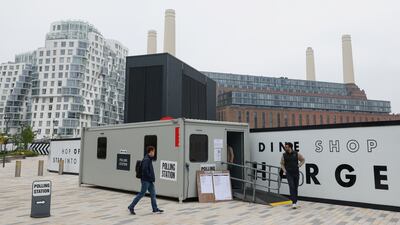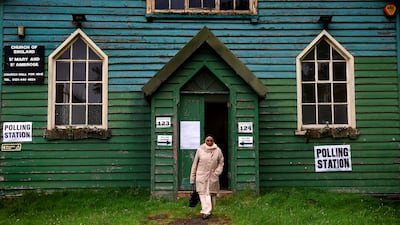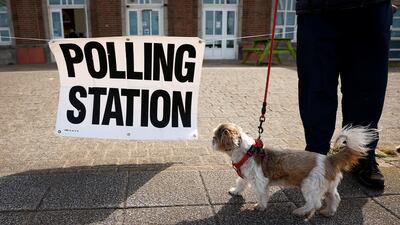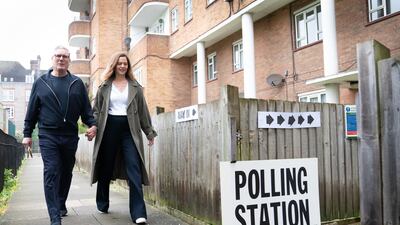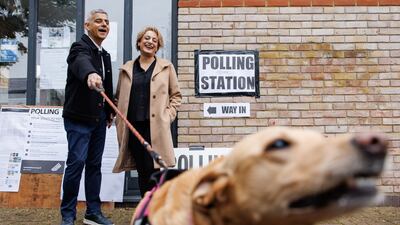Solid, if unexciting. That was the verdict on the Liberal Democrats’ performance in the local elections. Sir Ed Davey, the leader, talked them up, slipping into hyperbole. They weren’t "brilliant". They were good, though.
His party added more than 100 council seats and two councils, to take the number to 12 of authorities under Lib Dem control.
This, to be fair, was from a contest that was not focused on their traditional heartlands – these elections were primarily in the North and Midlands, in towns and cities where the Lib Dems are used to coming a poor third behind the Tories and Labour.
Still, they should take heart. After a disastrous period, which saw their popularity plummet, the Lib Dems are on an upwards trajectory again. Mr Davey is right, too, to stick to a strategy of concentrating firmly on those seats in the south where the Lib Dems traditionally come second to the Tories.
His is a rebuilding exercise, aimed at recapturing seats that used to be yellow shoo-ins, until that is the party paid the price of going into partnership with the Tories. Their approach was naive and they were clobbered.
The Lib Dems were seen as lacking in principles, prepared to sell out on key issues – the never-to-be-forgotten official video of Nick Clegg, at the time party leader, walking along the Embankment and promising not to raise university tuition fees, only to do exactly that once with the Tories in government, did untold damage.
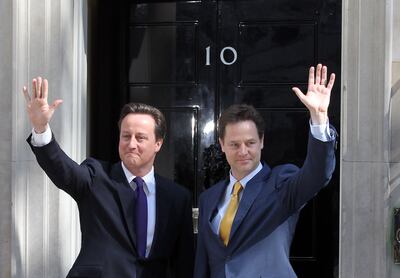
Wary of Starmer
Now, as the general election nears, Mr Davey is aiming for a return to yellow in the south-west of England, in the university-dominated cities such as Oxford, in south-west London and south Manchester. He’s hoping as well to appeal to those Remainers across the south who are disenfranchised, not at home in the current, anti-EU Tory party and unable to vote Labour.
Once again, the Lib Dems are set to become the bane of the Tories, picking off seats here and there, and taking down high-profile Conservative incumbents. While no one is suggesting they will reclaim former recent heights, not yet anyway, the Lib Dems rediscovering their mojo could be of enormous significance.
While Labour crowed about these election results, hailing them as proof that Sir Keir Starmer was on his way to Number 10, that he would be overseeing a landslide, closer inspection suggests that is not the case.

Labour appears set to win, but not by enough to command an overall majority. Voters were turned off by the Tories all right. But the crucial point is that those votes did not automatically switch to Labour.
That’s the worry for Labour: that the country wants a change of hue in charge, it’s finished with blue. But it’s not screaming, now paint Downing Street red.
The Tories lost 474 councillors, a calamitous figure. Labour, though, gained 186. So, almost 300 council seats were picked up by other parties, by the Lib Dems, Reform, Greens, independents.
The message from the 2024 local elections was that while the electorate is not persuaded by Rishi Sunak, it’s not exactly bowled over by Mr Starmer either.
Price of power
It means the UK might be heading for coalition government again; certainly, provided he does nothing disastrous between now and the ballot, Mr Davey may well find himself in position A – with an increased tally of MPs and able to negotiate his way to holding the levers of power.
If the Lib Dems can put in a strong showing, Mr Davey could be courted, as Clegg was before him.
There will be those telling him to stay away, that the punishment was so severe for entering an alliance previously they do not want to commit the same mistake. But this would be with Labour, not the Tories.
What is more, it would be with Mr Starmer’s Labour. The two, Mr Davey’s Lib Dems and Mr Starmer’s Labour, are closer than they let on.
This time, too, the Lib Dems should be firmer, not so generous, making their demands clear and unyielding: they want electoral reform, something the party holds dear.
It isn’t a maybe or an issue that can be put to a referendum; an end to first past the post and the introduction of proportional representation or PR, is their price, pure and simple, no ifs and buts.
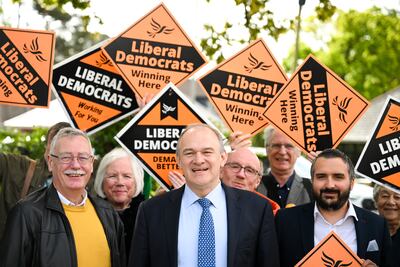
Next, where they would wish to see another national vote, would be on EU membership. That should be the second of Mr Davey’s shopping items: after the ushering in of public relations comes the scrapping of Brexit.
In the absence of any tangible form of Brexit dividend, the mood opposing exiting the EU has widened and hardened. The likelihood of that referendum going how the staunchly pro-EU Lib-Dems would like is strong.
Mr Starmer has stayed opaque where the EU is concerned, hoping to not lose working-class votes over it, seeing them persuaded by claims independence from the bloc would benefit UK manufacturing and further state aid for industry – which simply has not happened.
Here, as prime minister, at the cost of implementing Labour’s manifesto pledges, he would be agreeing to a Lib Dem proposal that he could go along with, in the knowledge that those other party policies would be getting the nod.
A coalition of yellow and red would be no bad thing for Mr Starmer for another reason: it would curb the left, putting the Corbynistas, who still exist, back in their place.
The great fear for the Tories is that this alliance would become permanent. That having achieved PR, the Lib Dems’ presence at the top table would be unshakeable. A hoped-for Lib Dem collapse, where the Tories are concerned, is not occurring.
Based on these local election results, the party that for so long has been used to running Britain possibly could be looking at becoming an also-ran. The next general election may herald momentous change.





